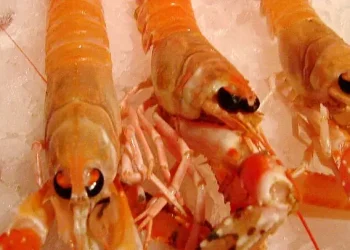The Flow Country has been named the world’s first peatland UNESCO World Heritage Site. This distinction celebrates the region’s extraordinary natural beauty and ecological importance, particularly its vast blanket bogs and diverse wildlife.
It’s a landmark achievement, placing The Flow Country alongside other amazing World Heritage Sites like the Grand Canyon and the Great Barrier Reef.
A Landmark Achievement for Scotland
Spanning around 1,500 square miles across Caithness and Sutherland, The Flow Country boasts the largest blanket bog in the world. These unique wetlands play a crucial role in carbon sequestration, making them vital in the fight against climate change. The recent UNESCO recognition highlights the global importance of this ecosystem, known for its unique landscapes and rich biodiversity.
Ecological Significance and Biodiversity
Peatlands and Carbon Storage
Peatlands are among the most efficient natural carbon sinks, holding more carbon per area than forests. The Flow Country alone stores approximately 400 million tonnes of carbon, making it a critical asset in reducing greenhouse gases and mitigating climate change.
Diverse Wildlife Habitat
The Flow Country is home to a variety of rare and endangered species, particularly birds like the red-throated diver, golden eagle, and short-eared owl. This rich biodiversity is a key reason for its UNESCO status, underlining the importance of protecting these precious habitats.
Scotland’s UNESCO Heritage
Scotland has a proud tradition of UNESCO World Heritage Sites, ranging from cultural gems like the Old and New Towns of Edinburgh to natural wonders like St. Kilda. The Flow Country now joins this esteemed list as the country’s first natural site recognized for its outstanding universal value.
Other UNESCO Sites in Scotland and the UK
Scotland’s other UNESCO sites include iconic locations like New Lanark and the Forth Bridge. Across the UK, World Heritage Sites vary from the historic Stonehenge to the natural splendor of the Giant’s Causeway. Here’s a quick overview of some of these sites:
Country |
Cultural Sites |
Natural Sites |
|---|---|---|
| Scotland | Edinburgh Old and New Towns, New Lanark | St. Kilda, The Flow Country |
| England | Stonehenge, Durham Castle and Cathedral | Dorset and East Devon Coast |
| Northern Ireland | Gracehill | Giant’s Causeway and Causeway Coast |
| Wales | Blaenavon Industrial Landscape |
Community Impact and Future Prospects
This new status is a big win for the local community. The Flow Country is expected to attract more visitors, boosting eco-tourism and creating green jobs in conservation and landscape restoration.
It’s a fantastic opportunity for local residents to engage in sustainable tourism and environmental projects.
Educational and Research Opportunities
The UNESCO designation also opens doors for educational and research initiatives. Schools, universities, and research institutions can now explore new programs focusing on peatland ecosystems and their role in climate change mitigation.
Exploring The Flow Country
Visitors to The Flow Country can enjoy a range of activities, from bird watching to guided tours that showcase the area’s unique landscapes and wildlife. It’s a perfect destination for nature enthusiasts and those interested in conservation efforts.
Aspect |
Details |
|---|---|
| Location | Caithness and Sutherland, Scotland |
| Area | Approximately 1,500 square miles |
| Key Features | Largest blanket bog, diverse wildlife |
| UNESCO Recognition | First peatland World Heritage Site |
| Activities | Bird watching, eco-tours, educational programs |
Final Thoughts
The Flow Country’s recognition as a UNESCO World Heritage Site is a significant achievement for Scotland and the UK. It not only underscores the ecological importance of peatlands but also highlights the region’s natural beauty and rich biodiversity.
This status brings new opportunities for conservation and community engagement, ensuring that The Flow Country remains a treasured natural resource for generations to come.
Sources: THX News, Department for Culture, Media and Sport, Sir Chris Bryant MP & The Rt Hon Ian Murray MP.









